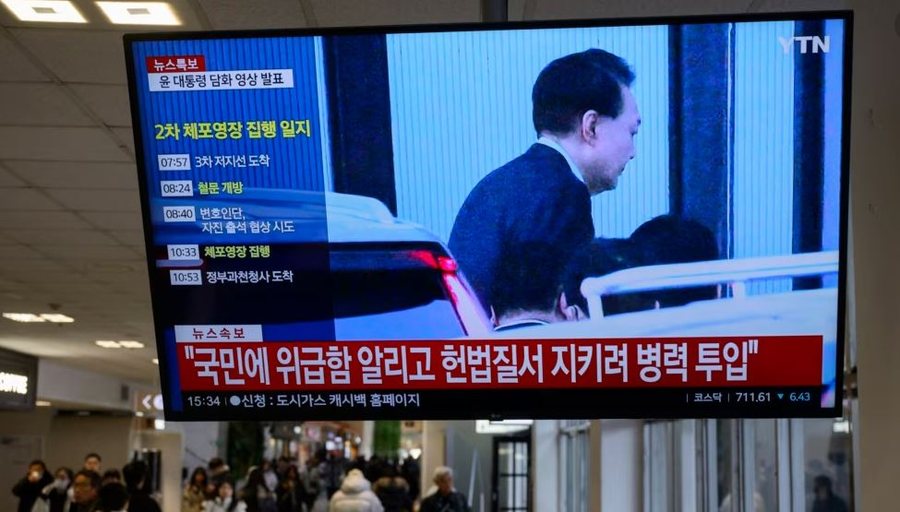
South Korean President Yoon Suk-yeol was taken to a detention center on the outskirts of the capital Seoul on Monday. He will be held there for 48 hours while prosecutors decide whether to seek an arrest warrant for him. Mr. Yoon was previously questioned for about 10 hours by the anti-corruption agency after a raid on his presidential residence earlier in the day. Mr. Yoon is charged with sedition after he temporarily declared a state of emergency on December 3. As VOA correspondent Bill Gallo reports, this ends a weeks-long standoff over the current status of Mr. Yoon, who was removed from office by parliament but whose final decision is in the hands of the Constitutional Court.
Yoon Suk-yeol becomes the first sitting South Korean president to be sent to a detention center. Prosecutors now have 48 hours to ask the court to keep him in custody.
He was questioned for 10 hours by officers from the Corruption Investigation Office for Senior Officials, CIO, after his residence was raided on Wednesday morning. He is accused of sedition following the short-lived declaration of a state of emergency last month.
Before he was detained, the President's supporters clashed with police near his residence in central Seoul.
However, they failed to stop the police from entering Mr. Yoon's compound.
About 1,000 police officers were mobilized for the operation, local media reported. Authorities had warned they were prepared to use stronger tactics than they did in the first attempt to arrest Mr. Yoon two weeks ago.
After several hours of negotiations with Mr. Yoon and his legal team, the impasse was resolved, without violence.
He left in a motorcade, maintaining his presidential image. Despite the circumstances, Mr. Yoon is the first South Korean president to be taken into custody.
Before surrendering, Mr. Yoon had vowed to fight until the end.
“Such repeated illegal actions based on an invalid order are deeply repugnant,” Mr. Yoon said.
Wednesday's events occurred in the wake of a turbulent political period that began on December 3, when President Yoon declared a state of emergency.
It was quickly overturned by lawmakers, who later voted to impeach him, suspending his presidential powers. However, the final decision on his impeachment now lies with the country's Constitutional Court./ VOA (A2 Televizion)











